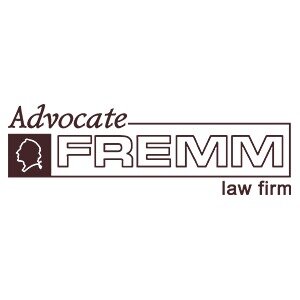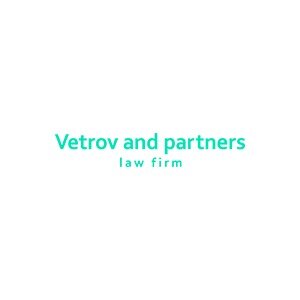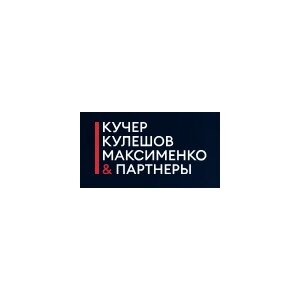Best Structured Finance Lawyers in Russia
Share your needs with us, get contacted by law firms.
Free. Takes 2 min.
Or refine your search by selecting a city:
List of the best lawyers in Russia
About Structured Finance Law in Russia
Structured finance is a complex area of financial law that involves the use of sophisticated financial instruments and transactions to help companies and financial institutions raise capital, manage risk, or improve liquidity. In Russia, structured finance products like securitization, asset-backed securities, and syndicated loans have become increasingly important for businesses seeking innovative funding solutions. Russian structured finance law governs the processes and parties involved in these complicated transactions, ensuring transparency, investor protection, and compliance with local regulatory requirements.
Why You May Need a Lawyer
Structured finance transactions are highly technical, involving multiple parties, cross-border elements, and strict regulatory oversight. You may need a lawyer in the following situations:
- If you are a corporation or financial institution seeking to securitize assets or arrange project finance deals
- If you are an investor needing advice about the risks and legal compliance of structured finance products in Russia
- If you require guidance on negotiating or drafting complex contracts such as loan agreements, trust management agreements, or security arrangements
- If you are involved in cross-border transactions and must ensure compliance with both Russian and international laws
- If you encounter disputes, defaults, or insolvency issues related to structured finance arrangements
- If you wish to understand the tax implications of structured finance solutions in Russia
Local Laws Overview
Structured finance in Russia is primarily regulated by several local statutes, as well as regulations from financial authorities such as the Central Bank of Russia (CBR). The following are key aspects of Russian structured finance law:
- Securitization: The Federal Law on Securitization (No. 379-FZ), effective since 2018, outlines the legal framework for securitizing assets through special purpose vehicles (SPVs), requirements for asset pools, and protection of investors.
- Trust Management: Russian law allows for trust management agreements, which are crucial in the formation and operation of SPVs and in managing assets separated for securitization.
- Collateral and Security: For structured finance, collateral is governed by the Civil Code of the Russian Federation, which sets out rules for pledges, mortgages, and other forms of security.
- Taxation: The Russian Tax Code outlines tax treatment of structured finance transactions, including value added tax (VAT), profits tax, and income tax on both resident and non-resident participants.
- Disclosure and Reporting: The CBR supervises disclosure and reporting requirements for structured finance transactions to ensure transparency and stability in the financial markets.
- Cross-Border Regulation: Russian currency control and anti-money laundering laws require careful compliance when funds or assets move between jurisdictions.
Frequently Asked Questions
What is securitization, and how is it regulated in Russia?
Securitization is the process of pooling various financial assets, such as mortgages or receivables, and issuing securities backed by those assets. In Russia, this process is mainly governed by Federal Law No. 379-FZ, which sets out the rules for asset selection, SPV formation, and investor protection.
Who are the main parties involved in a typical structured finance transaction?
The primary parties usually include the originator (such as a bank or corporation), the special purpose vehicle (SPV), investors, servicers, and often trustees who manage the underlying assets or collateral.
Can foreign investors participate in Russian structured finance deals?
Yes, foreign investors can participate, but they must comply with Russian currency control regulations, anti-money laundering requirements, and sometimes seek additional approvals depending on the transaction structure.
What legal structures are commonly used for SPVs in Russia?
SPVs are often structured as limited liability companies (OOOs) or special joint stock companies, regulated by specific provisions in Russian corporate and finance law to ensure bankruptcy remoteness and segregation of assets.
How is investor protection ensured in Russian structured finance?
Investor protection is ensured through asset segregation, disclosure requirements, trustee oversight, and regulations on the types of assets that may be securitized, all overseen by the Central Bank of Russia.
Does Russian law recognize synthetic securitization?
Russian law primarily focuses on traditional securitization (true sale structures). Synthetic securitization, which relies on derivatives rather than asset transfers, is less common and may face additional legal and regulatory challenges.
What are the key risks in structured finance deals in Russia?
Key risks include legal risks due to rapidly evolving regulations, credit risk of the underlying assets, market risk, and in some cases, currency and liquidity risks for cross-border transactions.
How are disputes in structured finance typically resolved?
Disputes are generally resolved through negotiation, arbitration, or litigation in specialized commercial courts in Russia. Some transactions may designate international arbitration forums.
Are there tax incentives for structured finance transactions in Russia?
Certain structured finance transactions may benefit from reduced withholding tax rates and other tax advantages. However, the specific tax implications depend on the type of asset, transaction structure, and status of the parties involved.
What regulatory approvals are required for structured finance deals in Russia?
Securitizations and significant structured finance transactions often require approvals or notifications to the Central Bank of Russia, and must comply with currency controls, anti-money laundering, and securities market regulations.
Additional Resources
If you are seeking more information or official guidance, these resources can be helpful:
- Central Bank of Russia (CBR): Oversees financial market regulation, including structured finance and securitization in Russia.
- Federal Financial Markets Service (FFMS): Provides supervision and regulatory guidance for securities markets in Russia (functions now integrated within the CBR).
- Russian Ministry of Finance: Issues guidance on taxation and financial regulation.
- Self-Regulatory Organizations (SROs): Such as the National Finance Association, which provide best practices and clarifications regarding structured finance transactions.
- Professional legal associations: Many bar associations and legal commissions have committees dedicated to banking and finance law.
Next Steps
If you need legal assistance in the field of structured finance in Russia, consider the following steps:
- Gather all relevant documents related to your transaction or query, including contracts, correspondence, and any regulatory notices received.
- Identify whether your case involves only local Russian law or if there are cross-border elements that may require international legal expertise.
- Look for qualified lawyers or law firms specializing in structured finance and banking law with proven experience in Russian markets.
- Schedule a consultation to discuss your specific needs and clarify your objectives and primary concerns with your legal advisor.
- Follow the guidance provided by your lawyer regarding compliance, documentation, negotiations, and interactions with regulators.
- Stay updated on changes in Russian financial and banking legislation, as this area is evolving rapidly and may impact your situation.
Taking these steps will help ensure your interests are protected and your transactions comply with all relevant Russian laws and regulations.
Lawzana helps you find the best lawyers and law firms in Russia through a curated and pre-screened list of qualified legal professionals. Our platform offers rankings and detailed profiles of attorneys and law firms, allowing you to compare based on practice areas, including Structured Finance, experience, and client feedback.
Each profile includes a description of the firm's areas of practice, client reviews, team members and partners, year of establishment, spoken languages, office locations, contact information, social media presence, and any published articles or resources. Most firms on our platform speak English and are experienced in both local and international legal matters.
Get a quote from top-rated law firms in Russia — quickly, securely, and without unnecessary hassle.
Disclaimer:
The information provided on this page is for general informational purposes only and does not constitute legal advice. While we strive to ensure the accuracy and relevance of the content, legal information may change over time, and interpretations of the law can vary. You should always consult with a qualified legal professional for advice specific to your situation.
We disclaim all liability for actions taken or not taken based on the content of this page. If you believe any information is incorrect or outdated, please contact us, and we will review and update it where appropriate.
Browse structured finance law firms by city in Russia
Refine your search by selecting a city.

















